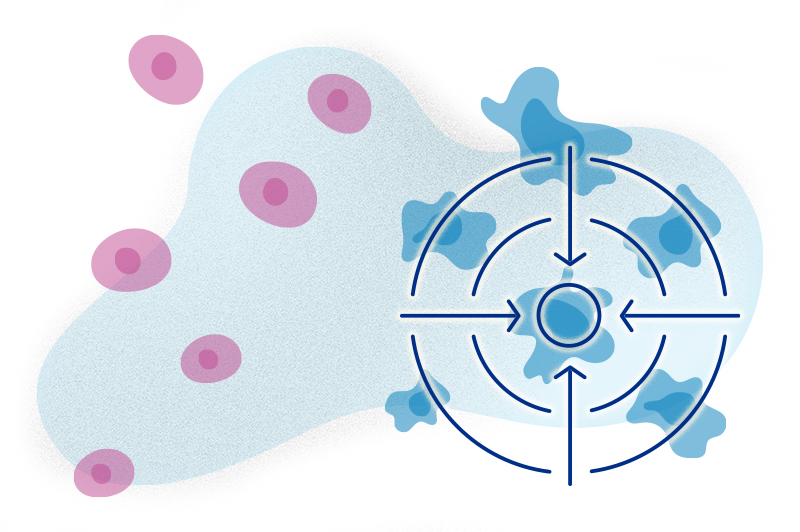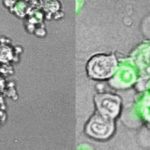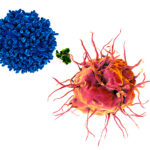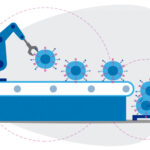Immunotherapy for children with primary liver carcinomas: Research offers new hope

Pediatric hepatocellular carcinoma (HCC) and fibrolamellar carcinoma are rare, aggressive forms of liver cancer that typically affect adolescents and young adults. Although some immunotherapy drugs are approved by the Food and Drug Administration as first-line treatments for HCC in adults, less is known about their effectiveness in treating pediatric liver carcinomas.
Now, new research led by Allison O’Neill, MD, director of the Liver Tumor Center at the Dana-Farber/Boston Children’s Cancer and Blood Disorders Center, suggests that a class of immunotherapy drugs known as checkpoint inhibitors might be an effective treatment option for a select group of pediatric patients with liver carcinomas.
Testing checkpoint inhibitors for pediatric liver carcinoma
Most pediatric solid tumors are less genomically complex than those in adults, suggesting less recognition by the immune system and a lower likelihood of response to immunotherapies. Pediatric HCC appears to be an exception: these tumors share enough similarities with adult HCC to render them a good disease in which to study immunotherapy, says O’Neill.
“Pediatric liver carcinomas mimic adult disease more closely than most pediatric malignancies. Based on this premise, we sought to study the utility of immunotherapy to treat patients with liver carcinomas,” she explains.
To learn more, she and her colleagues identified six adolescent patients with advanced primary HCC (either conventional HCC or fibrolamellar carcinoma) and offered them treatment with a checkpoint inhibitor alone or in combination with other systemic therapies and local control interventions. Checkpoint inhibitors — drugs such as pembrolizumab and nivolumab — work by preventing certain proteins on T cells from binding with proteins on tumor cells, which allows the T cells to better recognize the tumor and fight the disease.
The patients also underwent genomic sequencing of their tumor at baseline and throughout treatment to pair this data with response on imaging studies.
Genomic factors may predict response
Of the six patients, three responded to checkpoint inhibitors: Two achieved disease stabilization for a protracted period and one achieved a complete response to therapy. The latter patient had recurrent metastatic fibrolamellar carcinoma — a condition typically considered incurable.
Why did some patients respond to immunotherapy while others did not?
O’Neill and her team believe that certain clinical and genomic factors may play a role. For example, the responders tended to have lower burden disease predominantly in the lung, a site more accessible to immune cells.
In addition, the patient who experienced a complete response had a tumor genomic profile that differed from the other patients, with evidence of a more robust tumor immune infiltrate and markers of immune cell activation. The responders also had decreased tissue expression of genes associated with T cell dysfunction, inflammation, and cancer growth and invasion.
“Genomic profiling of pediatric tumors may provide key insights as to which tumors are more likely to respond to immunotherapies and guide which patients to treat with this approach in the future,” says O’Neill.
Just the beginning
Despite the small sample size, the case series — published recently in The Lancet eBioMedicine— is a promising advancement in the treatment of pediatric liver carcinoma. Not only do the findings suggest that certain tissue expression profiles may predict a subset of patients more likely to respond to checkpoint inhibitors, but they may also inspire examination of similar factors in pediatric patients with other cancer types being treated with immunotherapy in other types of pediatric cancer.
The results of this study support ongoing enrollment to a clinical trial initiated by O’Neill and her team to study checkpoint inhibitors prospectively in patients with pediatric carcinoma and to collect serial blood and tissue samples to further explore the genetic phenotype predictive of response.
Learn more about the Liver Tumor Center.
Related Posts :
-

Immunotherapy for kids: An option for childhood liver cancer?
You may have seen ads for immunotherapy drugs, or even know someone whose cancer has been treated with them. These ...
-

Gasdermin E: A new approach to cancer immunotherapy
Tumors have figured out various ways to prevent the immune system from attacking them. Medicine, for its part, has fought ...
-

Exposing a tumor's antigens to enhance immunotherapy
Successful immunotherapy for cancer involves activating a person’s own T cells to attack the tumor. But some tumors have ...
-

Making ready-made CAR T cells for cancer immunotherapy
In CAR T-cell immunotherapy, T cells from a patient’s own blood are engineered to carry so-called chimeric antigen receptors (...





